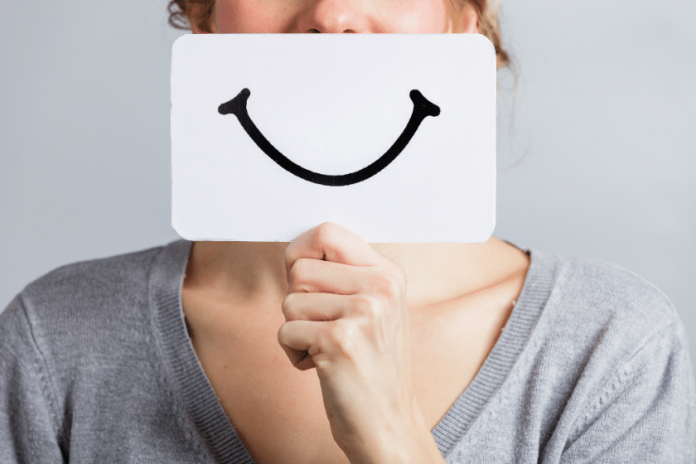
Most of us get down in the dumps occasionally, feel a little blue, or struggle with some lingering or periodic sadness or gloominess. It is ideal to have effective natural options that could bring us back into balance emotionally and mentally.
Fortunately there are some scientifically proven ways (or darn close) to boost your mood and happiness quotient without the need for medication. You may want to discuss some of the following options with a knowledgeable healthcare provider to help determine the best dose for you.
Read about 5 ways to reduce stress and boost your mood naturally
1. Adaptogen herbs. Use of adaptogen herbs such as ashwagandha and rhodiola rosea can help regulate the nervous system, restore emotional balance, and improve mood. In a recent review of ashwagandha (Withania somnifera), for example, investigators reported that the herb has anti-stress and neuroprotective qualities and is “a potential drug candidate to treat various clinical conditions, particularly related to the nervous system.”
Similarly, the authors of a nine-study review of the effect of rhodiola rosea on major and mild depression among more than 800 adults reported that the herb had “possible antidepressant” and “possible beneficial effects on mood.” If you choose to use these or other adaptogen herbs, such as Siberian ginseng or astragalus, follow the dosing directions on the label or consult with a knowledgeable healthcare provider.
Read about 9 ways to lower cortisol naturally and why you should
2. Color therapy. Although there’s no conclusive evidence that exposure to colored lights or, more specifically, color therapy (aka, chromotherapy) can significantly change a person’s mood, there’s also no evidence that it doesn’t. Anecdotally, color therapy has been shown to modify people’s mood and emotional state. The idea is based on the impact of colored light with different frequencies on the serotonin and melatonin pathways in the brain.
For example, positive responses are usually associated with orange, indigo, violet, and blue, which is the color most used therapeutically. Blue is said to reduce stress and tension in the body, while indigo and violet help relax the body and mind. You may want to experiment with colored lights or consult a color therapist for ideas on how to best utilize color in your life.
3. Essential oils. The delightful aroma of lavender, bergamot, or other essential oils can be refreshing, but can it also lighten your mood and relieve depression? According to some scientists, it can. In a study involving stress reduction for teachers, researchers found that dispensing bergamot essential oils for 10 minutes significantly reduced blood pressure and heart rate. Lavender and rosemary essential oils have been shown to lower stress in nursing students. Bergamot also has been found to reduce anxiety in people with mild depression and mitigate pain in cancer patients.
Consider using a diffuser in your home or office and choosing a mood-balancing essential oil such as bergamot, lavender, rosemary, or geranium.
4. Exercise. Physical activity is one of the least expensive and more effective ways to chase away the blues. That’s because exercise causes the body to release chemicals called endorphins, which trigger a positive natural high. The secret is to make sure your exercise choices are fun, so select activities you enjoy, such as dancing, tennis, rebounding, or jazzercise. Exercise to music, with a friend, or join a team. Make exercise a regular part of your lifestyle so you’ll always be one step ahead of the blues.
5. Light therapy box. Use of light therapy to relieve SAD (seasonal affective disorder), which is associated with the lack of sunlight exposure during the winter months, and major depressive disorder have been shown to be effective. Could the same approach be used to enhance mood in less severe situations?
Although these specific scenarios have not been studied scientifically, the results from other studies suggest use of a light therapy box could be helpful in boosting mood. One reason is that a benefit of using a light therapy box is that it helps increase levels of serotonin, a neurotransmitter necessary for a sense of calm and well-being. Consult with an expert on light therapy to ensure you get the correct device and use it properly.
6. Omega-3 fatty acids. These essential fatty acids are probably most often associated with certain fatty fish, such as tuna and salmon, and for helping with a variety of health issues. Depressive mood is one of them. Both eicosapentaenoic acid (EPA) and docosahexaenoic acid (DHA), the most common omega-3s, have demonstrated an ability to alleviate depression in people with mild to moderate major depressive disorder. Decades of research have shown us that a deficiency of these fatty acids is associated with depression, and more recently scientists have uncovered some antidepressant properties of these omega-3s.
7. Probiotics. The super highway between the brain and the gut is traveled by countless numbers of signals that affect mood and intestinal health and highlight the relationship between the two. Probiotics are good bacteria that help keep the gut flora in balance, which in turn has a positive impact on mood. Taking probiotics (at least 15 to 20 billion CFUs daily consisting of half a dozen or more different species) can assist in restoring and maintaining that balance.
8. Vitamin D. Scientists have found an association between depression and a lack or deficiency of vitamin D. Although the relationship is not completely understood, new (2017) research indicates that vitamin D reduces elevated levels of calcium ions in brain cells (neurons) that drive depression.
Have your vitamin D levels checked (a simple blood test) and talk to your healthcare provider about a need for supplementation and/or increased exposure to sunlight to help bring your levels up to a healthy level. The Vitamin D Council notes that blood levels of 40 to 100 ng/mL are considered to be sufficient to ideal for vitamin D.
9. Vitamins B6 and B12. The B vitamin family is associated with nervous system function, but vitamins B6 and B12 are especially important when we talk about mood and depression. Vitamin B6, for example, facilitates the production of the hormones serotonin and norepinephrine, which influence mood. Low levels of vitamin B12, which is not uncommon among older adults, vegetarians, vegans, and people with digestive disorders, may be linked with depression.
Do a quick inventory: are you getting enough vitamin B6 and B12? While vitamin B6 deficiency is not common, you may want to check your vitamin B12 levels, especially if you fall into any of the aforementioned categories. If you choose to take a vitamin B12 supplement, look for a sublingual option, which is better absorbed.
Sources
Amsterdam JD, Panossian AG. Rhodiola rosea L as a putative botanical antidepressant. Phytomedicine 2016 Jun 15; 23(7): 770-83
Bagetta G et al. Neuropharmacology of the essential oil of bergamot. Fitoterapia 2010; 81(6):453–61
Berridge MJ. Vitamin D and depression: cellular and regulatory mechanisms. Pharmacological Reviews 2017 Apr; 69(2): 80-92
Chang K-M, Shen C-W. Aromatherapy benefits autonomic nervous system regulation for elementary school faculty in Taiwan. Evidence Based Complementary and Alternative Medicine 2011; 2011:946537
Dar NJ et al. Pharmacologic overview of Withania somnifera, the Indian ginseng. Cellular and Molecular Life Science 2015 Dec; 72(23): 4445-60
Lam RW et al. Efficacy of bright light treatment, fluoxetine, and the combination in patients with nonseasonal major depressive disorder: a randomized clinical trial. JAMA Psychiatry 2016; 73(1): 56-63
Mayo Clinic. What’s the relationship between vitamin B12 and depression?
McCaffrey R, Thomas DJ, Kinzelman AO. The effects of lavender and rosemary essential oils on test-taking anxiety among graduate nursing students. Holistic Nursing Practice 2009; 23(2):88–93
McNamara RK. Role of omega-3 fatty acids in the etiology, treatment, and prevention of depression: current status and future directions. Journal of Nutrition & Intermediary Metabolism 2016 Sep; 5:96-106
PsyWeb.com. Color therapy for depression
Radeljak S. Chromotherapy in the regulation of neurohormonal balance in human brain—complementary application in modern psychiatric treatment. Collegium Anthropologicum 2008 Oct; 32 Suppl 2:185-88
Smith DJ et al. Adjunctive low-dose docosahexaenoic acid (DHA) for major depression: an open-label pilot trial. Nutritional Neuroscience 2017 Feb 22:1-5
University of Maryland Medical Center. Vitamin B6
Vitamin D Council. I tested my vitamin D level. What do my results mean?










